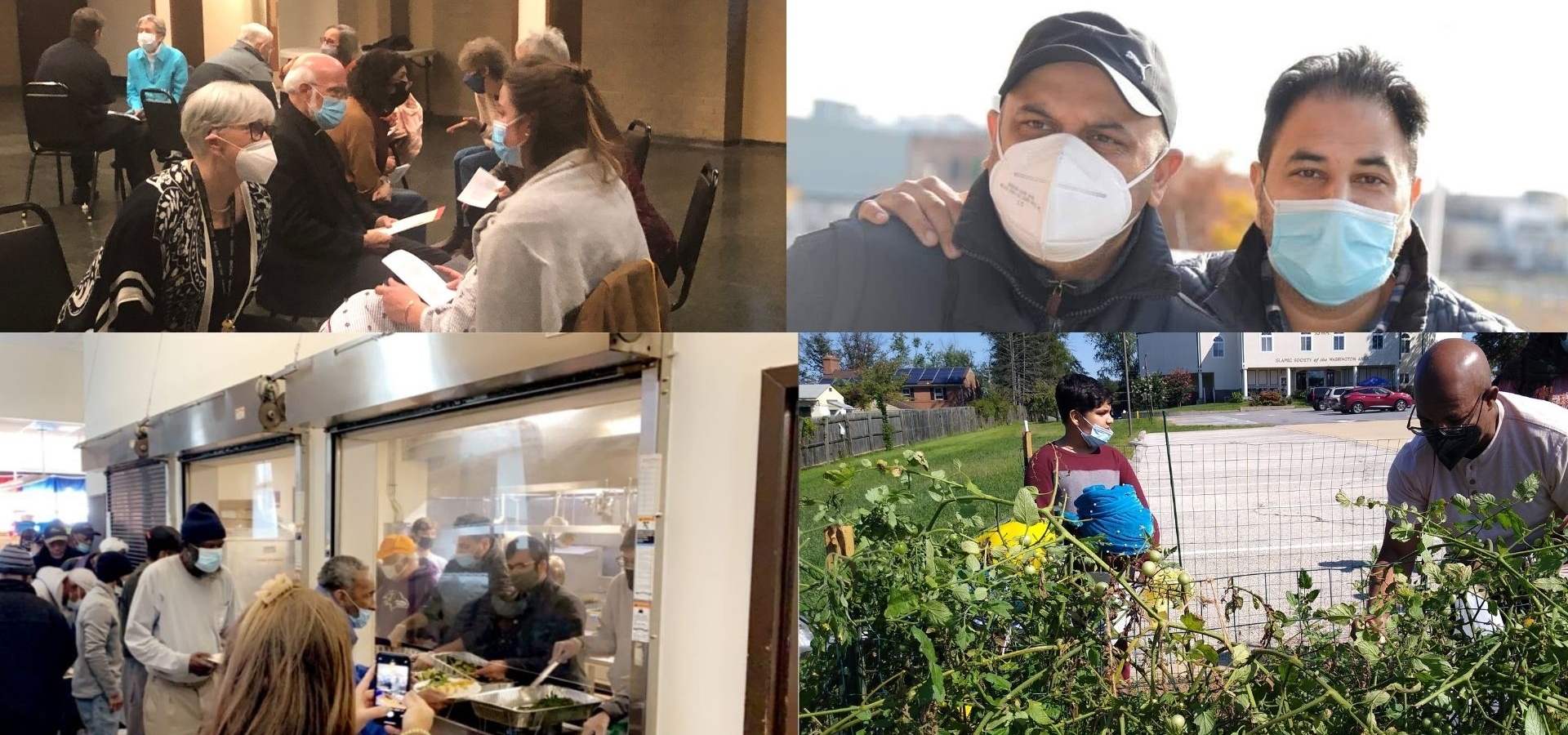
In the midst of a global pandemic, a national reckoning with racism, and increased political and religious polarization, Muslim, Christian, and Jewish religious and lay leaders from nine religious communities committed themselves to building interreligious bridges as the inaugural cohort of the ICJS Congregational Leaders Fellowship.
The goal of the year-long fellowship is to build an interreligious network with balanced participation. This cohort included African-American Protestant, Roman Catholic, Muslim, Jewish, and Mainline/Evangelical Protestant congregations.
“It is our hope that as a result of participation in the Fellowship, both lay and religious leaders have developed the skills and sensibilities to cultivate a culture of interreligious engagement within their congregations and the broader community,” said Dr. Alisha Tatem, the Congregational Leaders Fellowship program director.
The fellowship is grounded with an understanding that in a pluralistic society, religion is an integral factor that shapes our worldview and actions in the world. Congregational leaders play a key role in helping their communities engage religious diversity, combat religious bigotry, and promote religious pluralism through the teachings, practices, and relationships that shape their community.
“In the times in which we are living, it is of utmost importance that congregations engage in interreligious understanding that leads to a sense of belonging for all people,” Tatem said.
The Congregational Leaders Fellowship participants include one clergy member and two lay leaders from each congregation. This past year, there were 26 leaders participating from nine congregations: two Muslim, four Jewish and three Christian. They met virtually at least monthly for study sessions led by ICJS scholars, as well as readings, discussions and skill-building workshops related to the program theme of “Exploration of Human Dignity, Flourishing and Belonging in Abrahamic Faith Traditions.”
The pandemic presented a challenge, Tatem acknowledged, especially given that participants shared deeply and intimately about their faith and spirituality. But any obstacles were overcome through trust, hard work, and good will. Tatem said she was pleasantly surprised at how quickly deep relationships formed. When people got sick, other members of the cohort would check in on them. Many shared life events, both happy and sad. “The offline connections that were made were amazing,” Tatem said.
The Fellowship year culminated in a series of interreligious events organized by groups of congregations. Members of Beth El Congregation welcomed members of Ames United Methodist Church virtually into their synagogue during a joint Sabbath worship service in November. Ames will in turn host the Jewish congregation in the new year. During the sermon, the Rev. Marlon B. Tilghman of Ames UMC and his assistant pastor sat on a panel with the clergy from Beth El as they posed and answered questions. And during the service, congregants from Ames were able to ask questions as they arose in the Zoom chat, which were answered immediately by a designated member of Beth El.
“It was very educational,” Tilghman said. “Everyone was engaged and learned a lot, and felt it was very rewarding.”
An easing of the pandemic allowed for limited in-person gatherings. This included an event at the Islamic Society of the Washington Area (ISWA), who invited members of College Park United Methodist Church and Chizuk Amuno to help them prepare the mosque’s community garden for winter.
“Our project definitely opened my mind to the possibilities of working together across faiths. My experience with ISWA was so welcoming. I have learned a lot about hospitality from them,” said Rev. Amy Caruso, pastor of College Park United Methodist Church. “Our partnership will continue in the spring when ISWA will help us with our community garden that we are starting.”
Members of the Islamic Society of Northern Baltimore joined with Chevrei Tzedek to cook and serve food to the homeless men, mostly veterans, of The Baltimore Station.
“It was a powerful event whereby two different faiths came together for the greater good of helping those in need and building much-needed bridges at a time of social and political upheaval,” said Omer Awan, M.D. of the Islamic Society of North Baltimore. “It has created much more mutual understanding and camaraderie between the two congregations.”
Members of St. Matthew Catholic Church and Bolton Street Synagogue got down to some serious dialogue, but through a fun activity: Spiritual Speed Dating. Participants sat facing one another in concentric circles, and within a five-minute time limit traded answers to some probing questions, such as “What do you pray for?” Then the circle shifted for a new question and new partners. Later, they studied texts from the Christian and Jewish traditions on love.
“Many entered as strangers, but left feeling strengthened in the relationship with fellow parishioners and those from a different faith tradition,” said Rabbi Andy Gordon of Bolton Street Synagogue.
Several of the congregations are making plans to meet in the coming months, even though their cohort has formally ended. “This initial event will form the cornerstone of future collaborations,” said Marc Wernick, a lay leader from Bolton Street Synagogue.
He believes the experience of the Congregational Leaders Fellowship will help his own congregation in the long run.
“I also think the work the three participants have done as a group will bring a set of skills as Bolton Street Synagogue interacts, not only with the broader communities of faith but also as we explore our voice and participation in the Jewish community,” he said.
For more information on the ICJS Congregational Leaders Fellowship, contact Alisha Tatem, program director, atatem@icjs.org